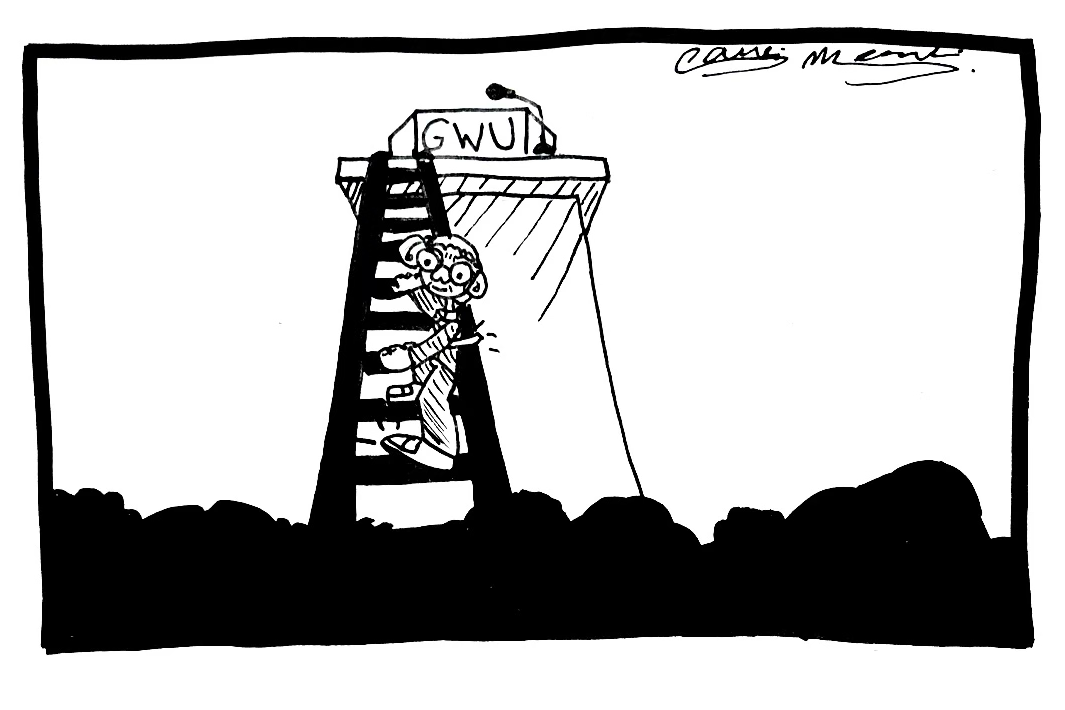Charles A. Garris, Jr. is a member of the Faculty Senate and the former chair of the Faculty Senate’s executive committee.
On Oct. 9, the Faculty Senate amended a resolution entitled: “Of Severe Disapproval of President Thomas J. LeBlanc Regarding the Appointment of Heather Swain” which was presented by the Faculty Senate Appointment, Salary and Promotion Policies Committee earlier this month. The resolution stated, “whereas the appointment of Ms. Swain in light of the Special Counsel’s Investigation, was totally inconsistent with the core values of The George Washington University.”
In a Hatchet op-ed published Oct. 14, professors Phillip Wirtz and Sarah Wagner, both senators and members of ASPP, criticized the senate for downgrading the condemnation of President LeBlanc from “censure” to “severe disapproval.” Their argument is that President LeBlanc egregiously showed bad judgement in hiring Swain as GW’s vice president for communication and marketing in view of the “widespread criticism over her role in the follow-up investigation of the Larry Nassar sexual abuse case.” The clear suggestion is that Swain was involved in some ignominious action regarding the notorious anathema Larry Nassar of Michigan State University. Along with Wirtz and Wagner, I did not agree with the senate’s action. I voted “no.” In my analysis, Swain is an outstanding hire and President LeBlanc’s judgement was excellent.
However, something terrible did happen. Swain was a victim of an out-of-control GW social media echo chamber that mercilessly slandered her with misinformation. Had the senate, and particularly ASPP, done proper diligence, as should be expected from a distinguished faculty, they would have realized that the cited status report of the independent special counsel appointed by the Michigan state attorney general made no allegations whatsoever that Swain had acted wrongly or inappropriately. In the senate resolution’s fourth “whereas” clause, ASPP disingenuously truncated and presented out of context the following sentence from the report:
“Vice President for Communications and Brand Strategy, Heather Swain, directed [MSU] Trustee Brian Breslin to copy university legal counsel Robert Noto on an email to other trustees in order to ‘maintain privilege,’ despite the fact that the email was not seeking any type of legal advice from Noto.”
As a result, the resolution clearly suggested untoward allegations of Swain’s actions which were far from what the counsel intended. The counsel did intend to show that broadly, MSU was not fully cooperative in providing him documents and emails, and used Swain’s advice to a member of the MSU Board of Trustees as one example among many to illustrate that point. There is no suggestion that the trustee’s email involved any nefarious activity, nor was there a suggestion that Swain had any knowledge of the content of the email, nor that she did anything improper. Further, the counsel made clear that asserting privilege is very common in discovery during litigation and is subject to judicial review. Hence, Swain’s advice to the trustee carried no ethical ramifications.
In summary, there is no evidence from the counsel’s report that Swain did anything wrong. Given her excellent resume and years of experience at MSU as the vice president of communications and brand strategy, and the fact that MSU welcomed her back to her old job after rescinding GW’s offer, President LeBlanc did not exercise poor judgement in appointing Swain as VP of communications at GW. The GW senate should have rejected the resolution in its entirety. The ASPP committee and the senate owe a “severe” apology to Swain for wrongly affirming her demonization in the GW media, to President LeBlanc for attempting to erroneously censure him and to the GW community for the lack of diligence, unfaithfulness to GW’s core values and their inept representation of the GW faculty.



